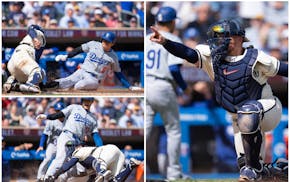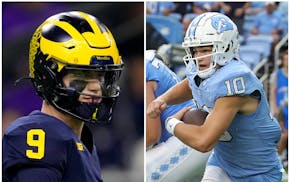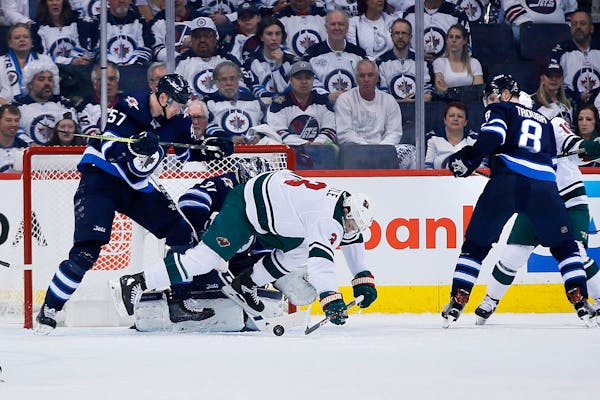The Wild has appeared in the playoffs six consecutive seasons, one of only three NHL teams that can claim that accomplishment. Those six appearances also ended with quick exits.
Wild owner Craig Leipold must decide if he's content with regular-season consistency or fed up with playoff flops. This feels like a crossroads moment for Leipold and his organization.
Frustration is boiling within his fan base. Leipold has two choices: Stay the course and hope things will be different next season, or make major changes in management and/or roster construction, to the extent that salary cap and contract restrictions allow for it.
Certain facts are indisputable. A team needs 16 wins in the postseason to hoist the Stanley Cup. The Wild has 15 playoff wins total since Leipold committed $196 million to sign Zach Parise and Ryan Suter in July 2012.
So 15 wins in eight playoff series combined covering those six postseason appearances.
That's not close to winning a championship.
The Wild looked a universe away from that goal in losing 5-0 in a series-deciding Game 5 to the Winnipeg Jets on Friday.
The Wild has failed to win a first-round series three consecutive years and has lost 16 of its past 20 playoff games, which strains credibility to suggest the organization is building toward a big payoff.
The Wild is stuck in a rut of being good enough to be a playoff regular but too flawed to be considered a legitimate Cup contender.
Leipold's first order of business will be to decide whether General Manager Chuck Fletcher gets a 10th season, or pays the price for a lack of postseason success.
Injuries provide some cover because losing Parise and Suter doomed any chance the Wild had at a first-round upset. Injuries to key players became an overriding theme this season. The Wild was unlucky in that regard, which might compel Leipold to chalk this season up to a case of, what might have been.
But their playoff failure isn't a one-year outlier. The roster Fletcher has assembled just doesn't seem built adequately for postseason. Not enough finishers. Not enough toughness. Not enough high-end talent.
The Wild had the second-oldest roster in the NHL this season when factoring each player's ice time, according to hockey-reference.com. Six of the league's nine oldest teams made the playoffs, which shows the value of experience, but an aging roster also underscores an urgency to maximize it because the window doesn't stay open forever.
Fletcher's résumé includes mistakes in personnel and contract decisions, a list that gets scrutinized after every playoff exit. The problem is compounded when players being counted on to produce deliver subpar performances too often in the postseason.
Charlie Coyle, Nino Niederreiter and Jason Zucker did not register a point in this series. That trio largely disappeared under the playoff lights. Their teammates weren't much better.
If not for a meaningless goal by Parise in the final minute of Game 2, the Wild would have been shut out in three of the five games.
Asked specifically about Coyle's struggles before Game 5, Wild coach Bruce Boudreau said, "We can't, at this stage of the game, have any passengers."
The Wild has had too many passengers in the playoffs, not just one or two guys falling short. Whether they underperformed or are just not talented enough, this situation requires a realistic assessment of where the organization stands.
One theory is that anything can happen in the NHL playoffs so just keep knocking and eventually the door might fly open. The Nashville Predators advanced to the Stanley Cup Final last season despite having the worst regular-season record of the 16 playoff teams.
But even if granted good health and a full lineup, the Wild can't dismiss its growing history of postseason flameouts as bad hockey luck. That's not a suitable answer. This is a trend.
Leipold started the season by proclaiming that "anything short of winning the Stanley Cup would be a disappointment."
His team won one playoff game, the same number as last season. Leipold's disappointment level will be measured by how he responds.
Chip Scoggins • chip.scoggins@startribune.com

Scoggins: Finch feeling heat of the Suns as playoff battle looms
Scoggins: Why 'championship or bust' fits these Wolves

Scoggins: Anatomy of a game-saving play as Correa throws out Ohtani


